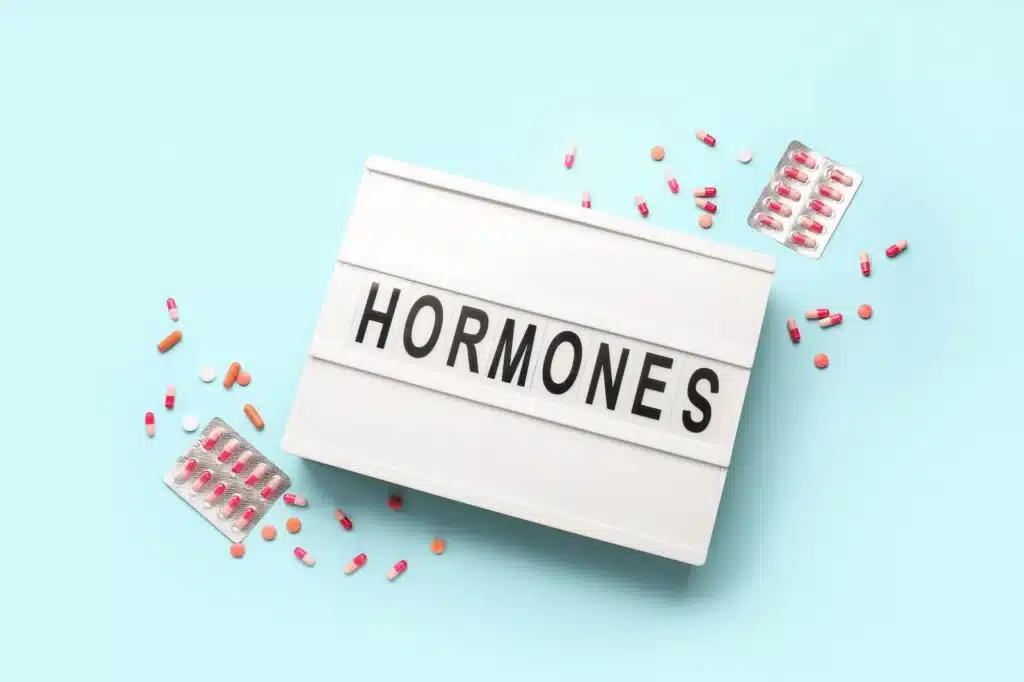Do you know that hormones can impact your oral health? Read more to know the connection between hormones and oral health.
Hormones and oral health impact your overall health. Learn more to know the connection of hormones and oral health.
How Hormones Affect Women’s Oral Health?
Women go through particular hormonal changes that make them more sensitive to oral health issues. These changes impact the blood supply to the gums and how the body responds to toxins from plaque. Because of these changes, women are more likely to face problems like gum disease and other oral health issues at different times in their lives.
Causes and Symptoms of Hormone on Oral Health
Women go through five stages in life when hormone shifts can make them more prone to oral issues: puberty, monthly periods, birth control, pregnancy, and menopause. Let’s see how hormones and oral health impact your body.
Puberty and Oral Changes
During puberty, more blood flows to the gums when female hormones like estrogen and progesterone increase. This makes gum tissue react differently to plaque, turning gums red, tender, and swollen, and more likely to bleed when brushing or flossing.

Hormonal shifts during the menstrual cycle, especially the rise in progesterone, can lead to oral changes. Connection between hormones and oral health lead to bright red, swollen, enlarged salivary glands, canker sores, or bleeding gums. This condition, called menstruation gingivitis, usually occurs a day or two before the period starts and clears up shortly after the period begins.
Effect of Birth Control Pills on Oral Health
Taking certain birth control pills with progesterone can cause gum tissues to become inflamed because the body reacts strongly to plaque toxins. The most noticeable gum changes usually happen in the first few months of using these pills. Newer birth control pills have lower hormone concentrations, reducing the gums’ response to plaque.

It’s essential to tell your dentist if you’re on oral contraceptives. Some medicines, like antibiotics prescribed by your dentist, can make birth control pills less effective.
Hormones and Pregnancy
When you’re pregnant, your hormone levels go through significant changes. A higher level of a hormone called progesterone, in particular, makes you more vulnerable to bacterial plaque, leading to a condition called gingivitis.
During the second to eighth month of pregnancy, you might notice your gums getting swollen and bleeding easily. This is known as pregnancy gingivitis.
Your dentist might suggest more frequent cleanings, especially in your second or early third trimester, to lower the risk of developing gingivitis. Regular dental check-ups during pregnancy can help keep your gums healthy.
Menopause and Oral Changes
As you age, take certain medicines, or go through menopause, various changes can happen in your mouth. The relation between hormones and oral health changes taste, a burning feeling in your mouth, increased sensitivity to hot and cold foods, and less saliva, leading to dry mouth.
A dry mouth can contribute to periodontal disease because saliva cannot keep the mouth moist and clean. This means it can’t neutralize acids produced by plaque. Many medicines prescribed to older adults can also cause dry mouth.
During menopause, a decrease in estrogen increases the risk of bone loss (osteoporosis) and inflammation around the teeth (periodontitis). Jawbone loss, especially in the jaw, can lead to tooth loss. Receding gums can show bone loss and expose more of the tooth to potential decay.
Hormone therapy, like estrogen, may help maintain dental health in postmenopausal women. Estrogen therapy prevents bone loss in both skeletal and jawbones, suggesting it might protect against tooth loss in postmenopausal women.
Conclusion
The blog guides you on the connection between hormones and oral health. Go for regular dental visits and tell your dentist about your medications.
Contact Dentalsway for more information on how to manage oral health.


